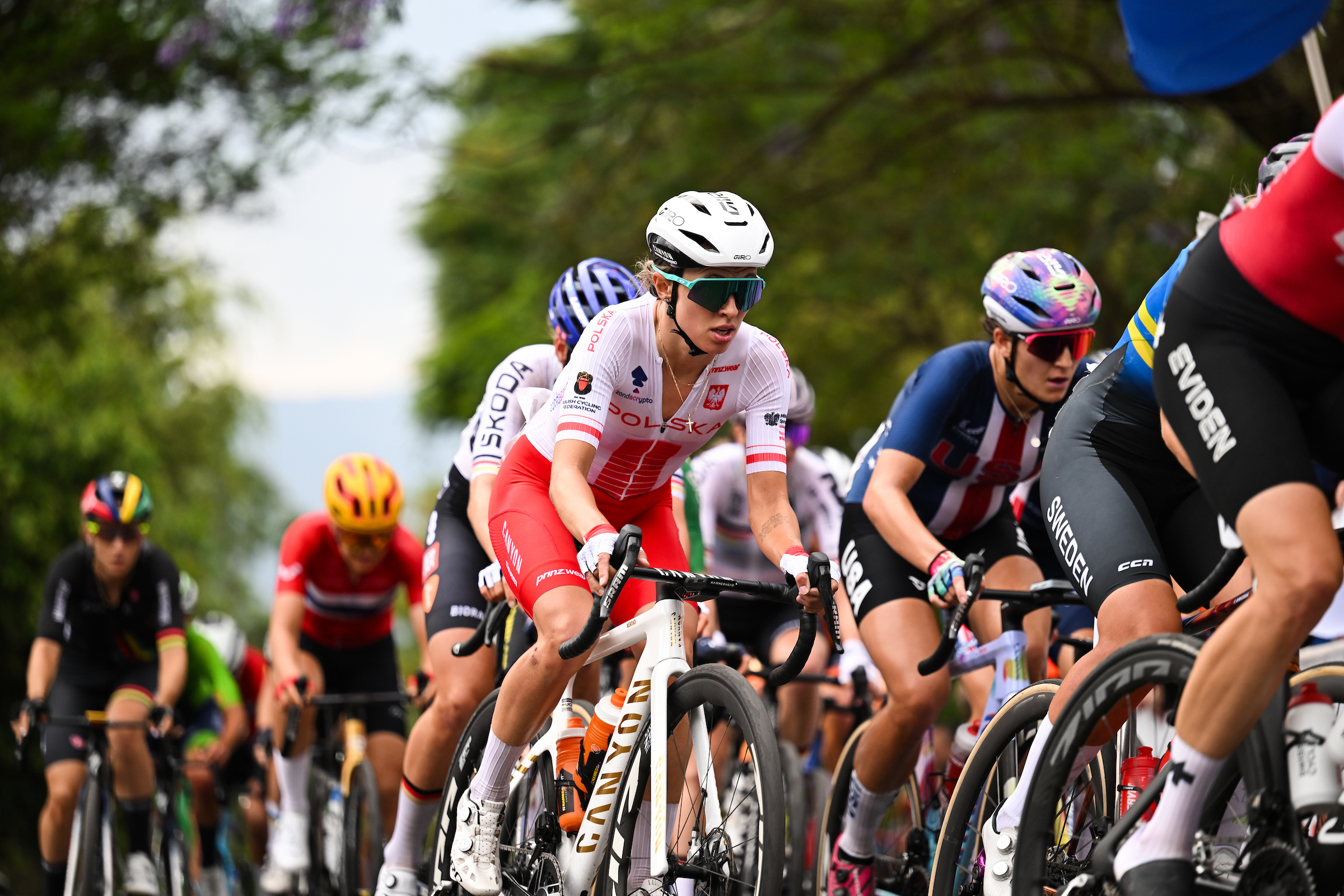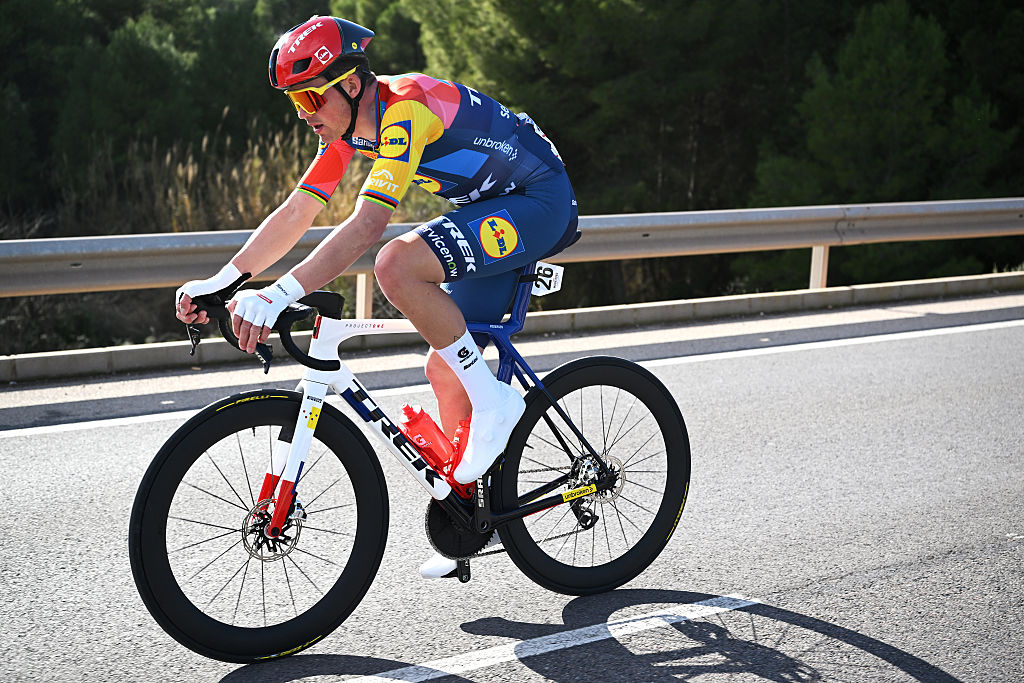Kasia Niewiadoma-Phinney blames altitude and climate for 'weird' and 'passive' World Championships road race
'I felt good, but I didn't do anything with that' says Polish rider as favourites race conservatively and miss out on win in Kigali

The latest race content, interviews, features, reviews and expert buying guides, direct to your inbox!
You are now subscribed
Your newsletter sign-up was successful
While other riders point fingers at each other for "stupid" tactics and lack of cooperation, Kasia Niewiadoma-Phinney underlined the role of the altitude and heat in Kigali for what she saw as a "weird" and "passive" World Championships elite road race.
The women's road race on Saturday saw a surprise winner take the world title, and the big-name favourites did not even compete for the podium, after allowing a late breakaway to build up a big gap that the chasing group simply never closed.
Riders in the favourites group looked at each other in the key moments of the race, with no one rider or nation wanting to spend their energy attacking or chasing, ultimately contributing to the leaders staying away and Magdeleine Vallieres (Canada) claiming the rainbow jersey.
With many of the riders who missed out criticising the tactics in the chasing group, Niewiadoma-Phinney pointed to the conditions in Kigali as a reason why riders were so hesitant to work.
"I think it's just because of this climate. It really feels different here, and it's not that you can be playing around with your energy as you normally would. I think that was the main thing, that everyone tried to be conservative," she said.
"Nobody wanted to take the initiative, no one wanted to spend more energy. Maybe because everyone said you need to be careful with your energy at altitude and in this climate, so I wonder how much that impacted us, the fact that no one wanted to do one little extra move because it would cost us something at the end.
"But in the end we were not even at the place to fight for the final."
The latest race content, interviews, features, reviews and expert buying guides, direct to your inbox!
Saving energy on the tough course, set at 1,500 metres above sea-level, was important, but riders perhaps took it too far, taking the foot off the gas in an extreme way whenever things got tough or broke up.
"It felt like we were going really hard up the climbs, like there was always something, and then at the top we were practically braking because no one wanted to take the initiative. Maybe the fact that we always kind of stayed together created such a passive race," Niewiadoma-Phinney said.
"I saw that Demi [Vollering-Netherlands] was being dropped, so probably if she wouldn't be over the top with us then we would be more motivated but once she was there [again], it's just looking at each other. Personally, it was hard, because it's not like I had a big team or I had a team at all, so I don't know."
For the riders who were in that chasing group, the race never quite got going, and viewers were denied a chance to see the likes of Niewiadoma-Phinney (Poland) Pauline Ferrand-Prévot (France), Demi Vollering (Netherlands) and Elisa Longo Borghini (Italy) go head to head, which was a source of regret for the Polish rider.
"I felt good, but I didn't do anything with that," she said. "Sometimes it's better to have bad legs and survive, versus like, I felt good on the climbs, but maybe we just waited too long."
However, she was clear to say that it wasn't a case of the favourites underestimating the breakaway riders, or just assuming that they would crack and come back.
"Definitely we did not think about them like 'oh, let them go because we will catch them anyway'. Of course you must be strong if you are in the breakaway and you still have time over the favourites," she said. "
"I don't believe that any of us were being arrogant or thinking they're not good enough, because you always have to appreciate [value] your competitors."
This isn't the first time the tactical complexities of the peloton have seen key favourites mark themselves out of big races, and Niewiadoma-Phinney was regretful that the riders had let it "happen again".
"It was really, really weird and I just feel super sad about how it worked out, disappointed that we all let a situation like this happen again by just looking at each other and riding against each other," she said.
"It's such a pity because it's a big race, a race that we all were preparing to win, and actually all the favourites - we just lost."
Subscribe to Cyclingnews to unlock unlimited access to our coverage of the first-ever UCI Road World Championships on African soil. Our team of journalists will bring you all the major storylines, in-depth analysis, and more directly from the action in Rwanda as the next rainbow jerseys are decided. Find out more.
Matilda is an NCTJ-qualified journalist based in the UK who joined Cyclingnews in March 2025. Prior to that, she worked as the Racing News Editor at GCN, and extensively as a freelancer contributing to Cyclingnews, Cycling Weekly, Velo, Rouleur, Escape Collective, Red Bull and more. She has reported from many of the biggest events on the calendar, including the Giro d'Italia, Tour de France Femmes, Tour of Flanders and Paris-Roubaix. She has particular experience and expertise in women's cycling, and women's sport in general. She is a graduate of modern languages and sports journalism.
You must confirm your public display name before commenting
Please logout and then login again, you will then be prompted to enter your display name.
